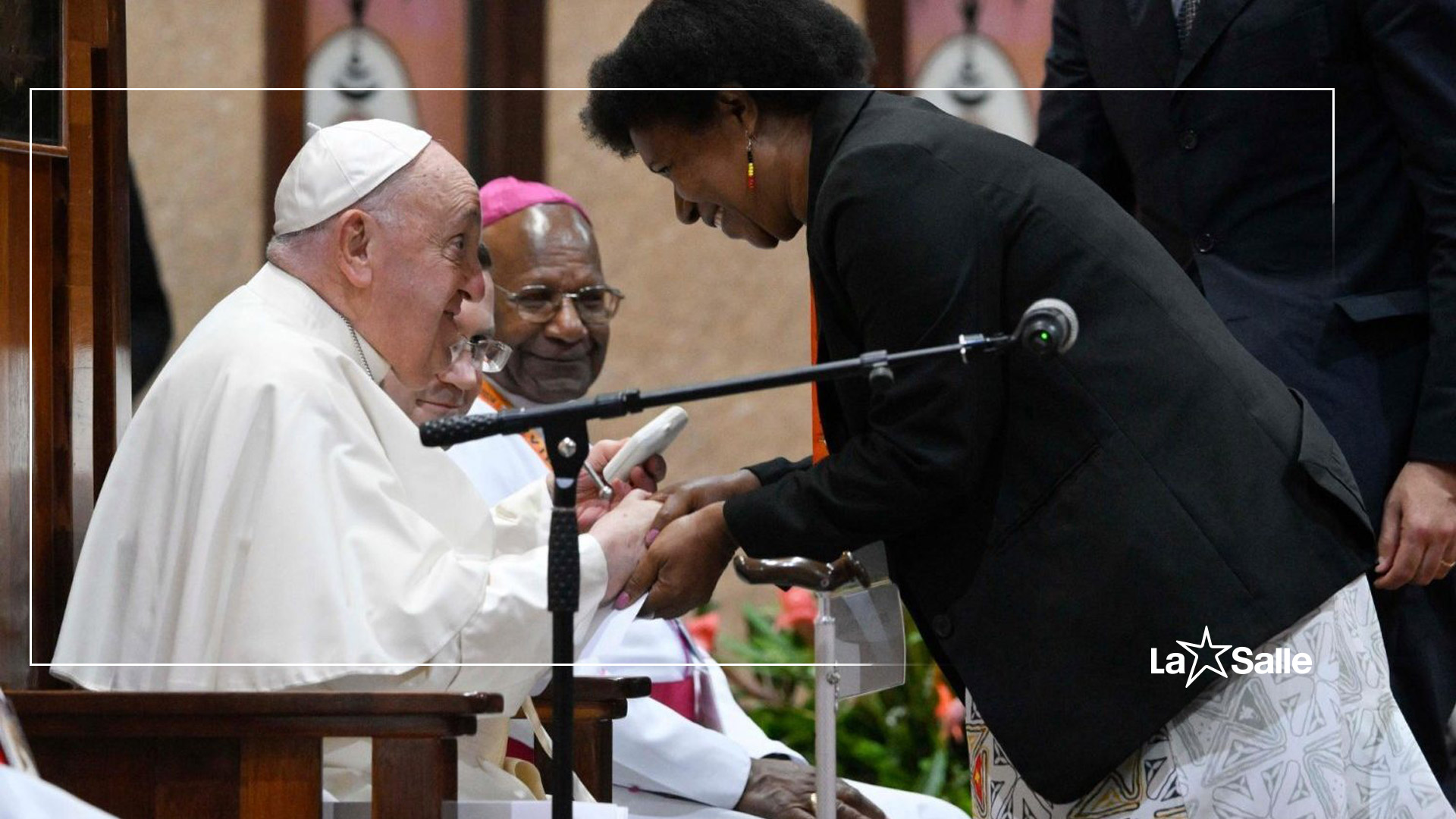By: Johan Pacheco | Vatican News
Lasallian Grace Wrakia shared with Vatican News – Vatican Radio the hope that the visit of Pope Francis leaves them to continue walking together: “that the Holy Father gives us the opportunity to listen to each other encourages us in this synodal way”.
“My name is Grace Wrakia and I am a lay person, born, baptised and raised in a third generation Papua New Guinean Catholic family. I have three daughters, whom I have raised alone for the past twelve years. I have been granted one of the greatest honours of my life: to attend the Synod of Bishops on Synodality in Rome in 2023 and 2024,” she said at the Shrine of Mary Help of Christians in Port Moresby during Pope Francis’ meeting with bishops, priests, religious men and women, seminarians and catechists.
Grace Wrakia in an interview with Vatican News – Vatican Radio shared her hopes for the Pope’s visit, hoping that her Church will also continue on a synodal path of listening, hope, and respect for their cultures.
“There are many people working together,” she assured, emphasising the desire to “continue to establish mission sites in remote parts of the jungle, far beyond the ocean, where it is difficult to reach”. In fact, many people walked for days to meet the Pontiff.
She also considers that the presence of the Successor of Peter “in itself is an experience that really honours us”. Moreover, Wrakia thanks Francis for travelling to Papua New Guinea to listen to them: “the fact that he listens to us already gives us great peace… that the Holy Father gives us the opportunity to listen to us, encourages us in this synodal way. Faith in the Church is also about listening to the peripheries, and we are on the peripheries,” he said.
In the testimony she shared at the meeting with the Holy Father, Grace Wrakia said that she is involved in Christian education and formation work in the Lasallian Schools in Papua New Guinea. She said she wants to see a change “where women are partners and co-operators, where young people are not ignored and neglected but welcomed with open hearts and minds, where priests and religious work as partners and not competitors, where priests and consecrated persons are not seen as ‘big men’ but servant leaders, where local priests are given the same respect as missionaries”.
Furthermore, she dreams of “lay people being empowered to participate actively in the life of the Church and not as spectators, where church politics is not divisive but diversity is accepted, where Catholics live in harmony with other Christian denominations and, most importantly, where the synodal aspects of my way of life in Papua New Guinea, such as ‘community’ and ‘friendship’ are wonderfully grounded in the life of the Church”.
She longs for change, but as a Papuan, she is aware that it requires a lot of patience in a place and time where technology and globalisation have already caught up with us. “Change in the Church is inevitable, but in Papua New Guinea it is a more gradual process and therefore should not be imposed on us by force, as we have experienced before”.
On the second phase of his Apostolic Journey, Pope Francis visited Papua New Guinea on the continent of Oceania from 6 to 9 September, inviting them to continue their mission as witnesses: “Carry on your mission as witnesses of courage, beauty and hope! And do not forget the style of God: closeness, compassion and tenderness. Always move forward with this style of the Lord! I thank you for what you are doing, and bless you all from my heart. And I ask you, please, do not forget to pray for me, because I need it. Thank you!
Listen HERE to Grace Wrakia’s interview with Vatican News.



